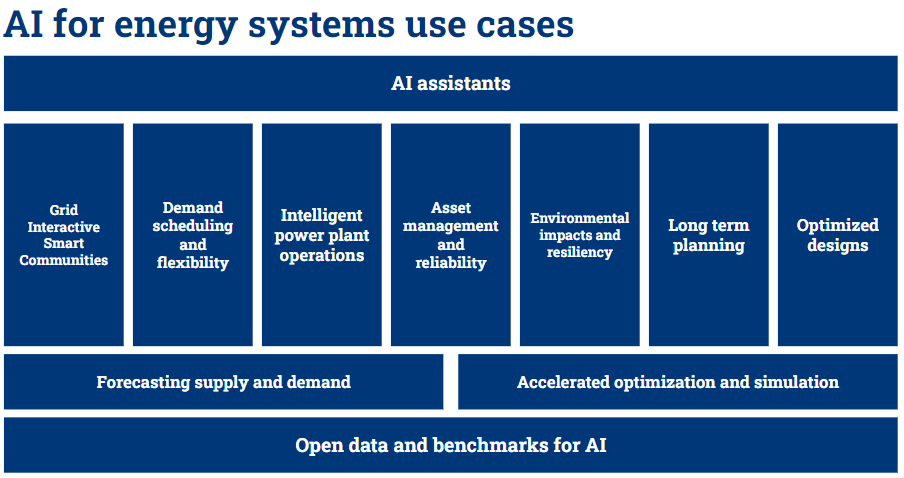
LF Energy AI is a Special Interest Group created to drive AI for energy priorities forward.
Artificial Intelligence (AI) has massive potential to accelerate the transformation and decarbonization of energy systems in the following principal ways:
- Tackling complexity and variability as climate change and the energy transition make power systems even more complex.
- Handling rising volumes of data as power grids are increasingly digitalized and decentralized.
- Allowing further optimization and automation of processes, and thus improving performance and pushing the limits of existing systems.
Stakeholders in the energy industry are looking for ways to tap this potential — from enterprise level applications all the way to real time critical processes.
The potential of AI relies heavily on access to data, and much of the granular data in energy involves some degree of privacy, confidentiality, cybersecurity, and critical infrastructure protection issues. Open innovation and collaboration in this area will bring new solutions such as synthetic data generation based on real datasets, privacy preserving techniques, and more. LF Energy is the place for these techniques to be developed together, and for high-value, high-quality open benchmark datasets to be made available for open, use case driven, peer-reviewed collaborative research and innovation.

AI projects hosted by LF Energy include:
Energy industry stakeholders are also exploring Generative AI (GenAI) and Large Language Model (LLM) applications. Conversational assistants can enhance customer experience and interactions, streamline access to data and knowledge, or help analyze and produce technical and legal documents, for example to help accelerate interconnection and permitting. Open source models are catching up with proprietary solutions for these use cases, and will dominate due to the importance of transparency, privacy, and security requirements.
LF Energy has launched a Special Interest Group (SIG) to drive AI in energy priorities forward with our members. We hope to provide relevant guidance for all stakeholders to embrace the potential of AI responsibly and make their organization and operations AI-ready. Whether you work for a utility, public utility commission, research institution, or vendor, we encourage you to reach out to LF Energy Director of Ecosystem and AI Alexandre Parisot at aparisot@linuxfoundation.org.


